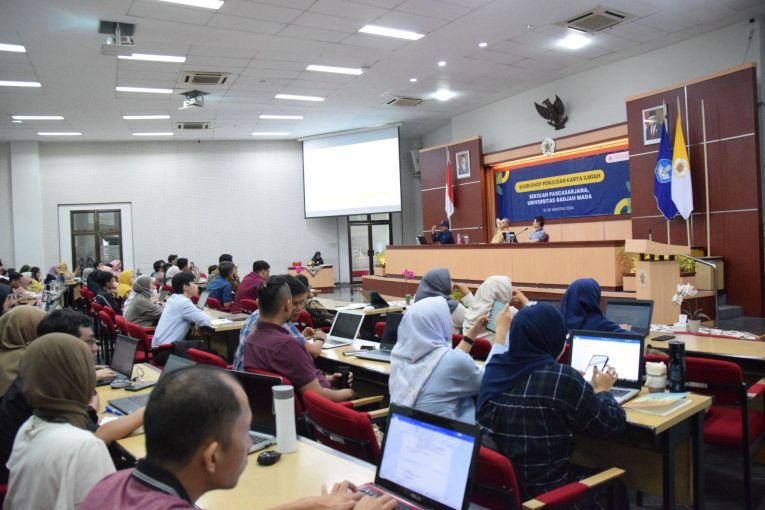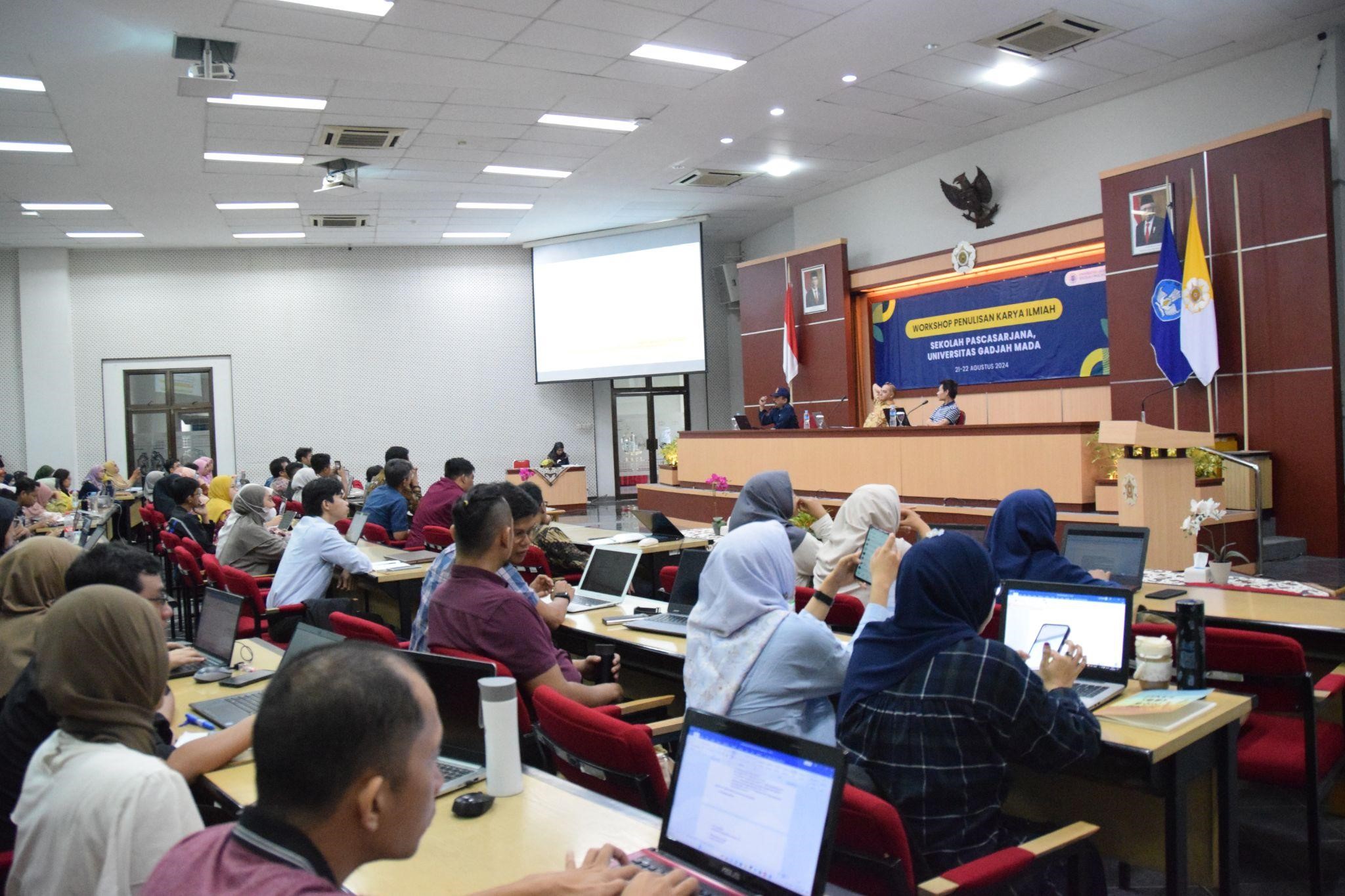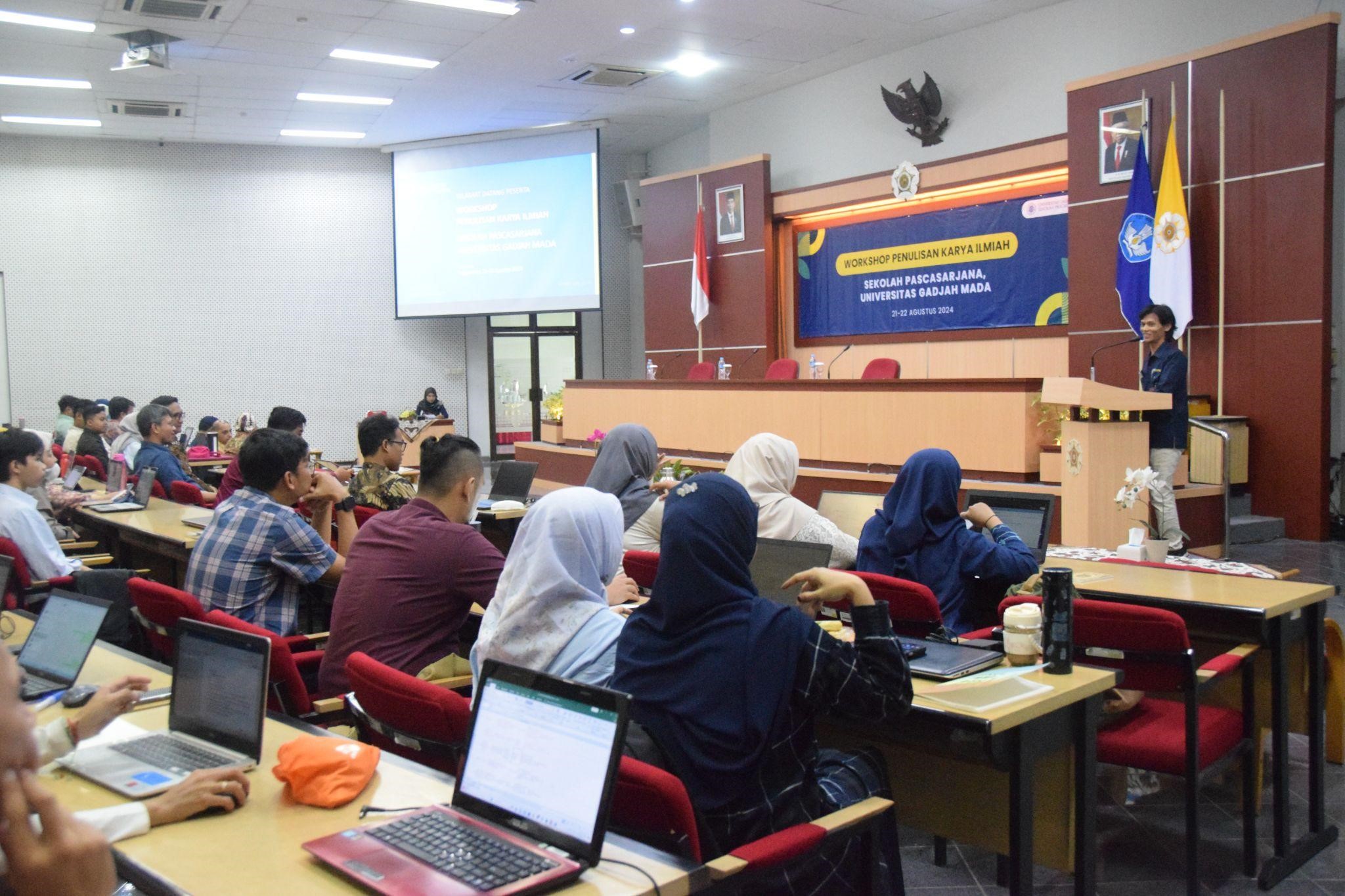
The Deputy Dean for Academic Affairs, Student Affairs, and Cooperation of the Graduate School (SPs), Gadjah Mada University (UGM), Dr. Widyanto Dwi Nugroho, Ph.D., opened the Scientific Writing Training on Wednesday (August 21st) in the Auditorium Room, 5th Floor, UGM Graduate School Building. This training is an annual routine event lasting two days from August 21st-22nd 2024, aimed at facilitating master’s and doctoral students, particularly those in the process of writing theses or dissertations, to produce optimal scientific work.
This year’s Scientific Writing Training carries the theme “Academic Challenges: The Presence of Various Artificial Intelligence Services.” In his opening speech, Dr. Widyanto stated, “We have routinely organized scientific writing training with many goals, especially regarding journal publications. Writing is not something to be afraid of; I am confident that graduate students are already adept with the increasing publication demands at UGM.”
The first day of the training consisted of two sessions: a plenary session and parallel sessions. Dr. Zainal Abidin Bagir, a lecturer at SPs UGM, acted as the moderator for the plenary session featuring two speakers. Prof. Dr. rer. Nat. Junun Sartohardi, M.Sc., presented material on the Latest Developments and Challenges in AI. Prof. Junun provided tips on how to choose the right scientific journal.
Following Prof. Junun’s presentation, the second speaker was Prof. Cheng-I Hsieh, Ph.D., a lecturer from National Taiwan University, who delivered material on Academic Writing. Prof. Cheng explained effective writing techniques, including how to write an abstract, methodology, results and discussion, draw conclusions, and prepare a bibliography.
During the Q&A session, participants were keen to inquire about the use of Artificial Intelligence (AI) in scientific writing. Both speakers agreed that AI usage is permissible with limitations and must adhere to academic ethics and integrity. Permitted uses of AI include tools for checking manuscript similarity and translating foreign languages.
In conclusion, the Scientific Writing Training at SPs UGM not only provides valuable knowledge and skills but also emphasizes the importance of adapting to the ever-evolving academic landscape. By addressing the challenges posed by artificial intelligence and highlighting effective communication, this training equips students with the necessary tools to succeed in their academic endeavors.
Author: Asti Rahmaningrum


